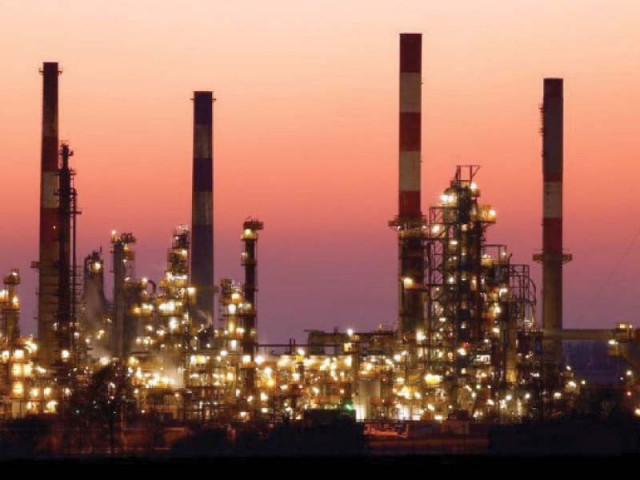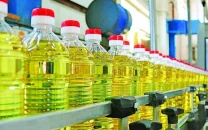Refinery plans $1.3b investment in new unit
Will install hydrocracker plant for converting furnace oil into petrol, diesel

A large oil refiner – Pak Arab Refinery Limited (Parco) – has planned long-term investment of up to $1.3 billion for setting up a hydrocracker unit to convert furnace oil into petrol and diesel.
The project is aimed at sustainable oil supply in the country to ensure energy security. It comes in the wake of approval of incentives by the government in the new refinery policy to pave the way for upgrading plants for the production of clean and environmentally friendly Euro-5 fuels.
Parco requires a capital injection of $500 million for upgrading its plant. However, sources said that its shareholders wanted to make investment over the long term rather than only producing Euro-5 petroleum products.
After the start of liquefied natural gas (LNG) imports, the power sector has abandoned the use of furnace oil and switched over to LNG, which has created problems for refineries in disposing of stocks of furnace oil.
In this situation, Parco has started exporting furnace oil. Now, it plans to invest over $1 billion in a new hydrocracker unit, which will convert furnace oil into other petroleum byproducts, ie, petrol and diesel.
This initiative will help in reducing the import of petrol and diesel as well as save millions of dollars in foreign exchange.
According to the initial plan, the cost of a hydrocracker (bottom of the barrel) unit is estimated at $1.75 billion and clean fuel production around $500 million.
Sources told The Express Tribune that Parco was conducting a study to evaluate a “mid-case” where it would pour an investment of around $1 billion to $1.3 billion.
Parco estimates it will be able to fetch export proceeds of $1.5 billion over the next six years and has requested the State Bank of Pakistan (SBP) to allow it to utilise dollar proceeds in meeting the project’s foreign currency requirements. The company is cash rich having $400 million worth of cash available for equity investment and due to its large operating capacity, the refinery will benefit most from the incentives offered in the brownfield refinery policy estimated at around $300 million, sources said.
They revealed that the Special Investment Facilitation Council (SIFC) had also taken up the matter in a recent meeting. The Petroleum Division was informed that a period of five to six months was required to implement the new refinery policy.
The division has requested the Cabinet Committee on Energy for an extension in deadline beyond the original date of April 22, 2024 for inking refinery upgrade agreements with the Oil and Gas Regulatory Authority (Ogra).
While three refineries – Attock Refinery Limited (ARL), National Refinery Limited (NRL) and Pakistan Refinery Limited (PRL) – were ready to sign deals, Parco and Cnergyico PK needed more time.
The new refinery policy, which remained in the development process for over four years, is aimed at upgrading oil processing plants for producing Euro-5 fuels and reducing the furnace oil output. The policy includes a 2.5% incremental duty incentive on high-speed diesel and a 10% duty incentive on motor spirit, in addition to the current 7.5% deemed duty on diesel, for seven years.
These collections will be deposited in an escrow account managed by Ogra, which will cover up to 27.5% of plant upgrade costs. Refineries can withdraw funds from the account after achieving financial and project milestones.
To avail themselves of these incentives, the refineries must sign plant upgrade agreements, open an escrow account and provide a Rs1 billion bank guarantee to Ogra.



















COMMENTS
Comments are moderated and generally will be posted if they are on-topic and not abusive.
For more information, please see our Comments FAQ